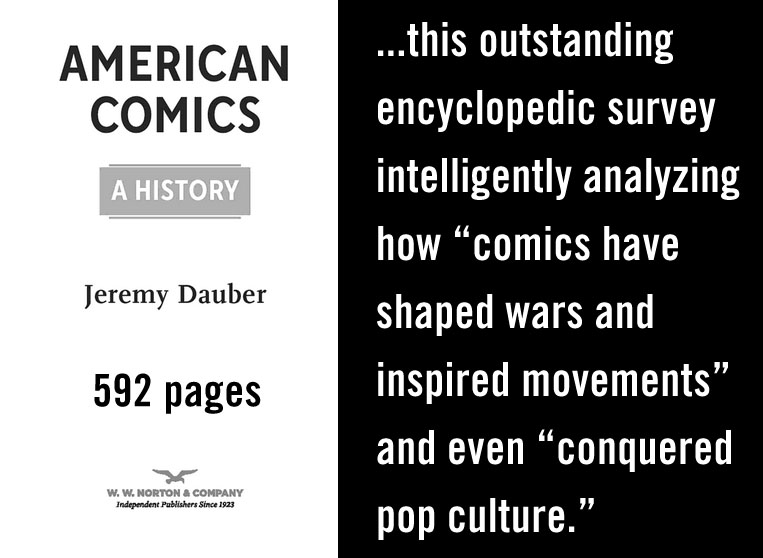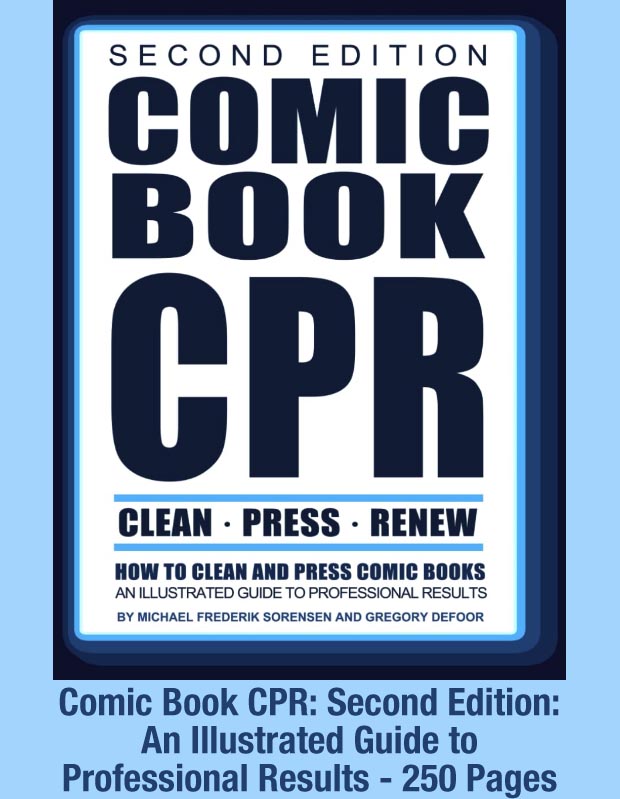Inaccessible Comic Books
"...the comics medium - certainly when it comes to DC and Marvel - is still relatively inaccessible"
Speaking of inaccessible
Another article (on a needed subject) trying to explain why the comics medium is simultaneously a seedbed for enormous success in other mediums (particularly film adaptations) but can't grow its own audience.
But for all the reboots, retcons and relaunches, there's one glaring problem neither publisher seems particularly enthused about confronting. Those who don't read comics probably aren't even aware of its existence, but for longtime readers it's a name that needs no introduction - the 'direct market'. The point is that the way comics are actually sold is holding them back..."
My first reaction on reading that accusation is to say: delete the 'direct market' and the American comic book industry virtually disappears.
Article at whatculture
Comic books against readership?
The article doesn't say this, but just to point out the obvious, of the various problems facing comic books as they compete in the 21st century world of reading-habits, its not the medium itself.
Nor is it whether a print copy or a digital copy is able to make its way up under the eyes of a new reader and then fails to capture a new comic book medium aficionado. Readers can easily leap from one delivery system to another for the story and characters they're interested in, hence the droves of ticket-buyers at a movie theater complex for popular "properties," as they say in the corporate world, which generates all that ancillary licensing money.
The dilemma facing comic books is the one it always faces, whether the stories can be read with interest and provoke further interest afterward so that future issues of a story (however it is provided) are sought out.
I've been reading comic books all my life, and in the last decades I have found, often, it is too time absorbing to assimilate a story line that looked good on the cover (and breezing through the inside pages) only to have no enthusiasm for untangling the story knots to understand what's happening, who the characters are, why they're acting how they're acting. Without any backstory built in to the new readers memory, it is too often like deciphering a foreign language badly translated into English. That is, unless it is issue #1, which seems to be the only place the writers (and especially editors) take care to "onboard" a reader. (A big part of this is perhaps the expectation the stories will be collected into a single volume - the "binge" version, negating the need for story recaps and re-affirmations of what a character is in the story. But, naturally, that expectation of a future collected version is damaged if single issue stories cannot maintain readership via the shorter episodes.)
It would be interesting to know if the constant need for reboots to issue #1 for a series is in direct proportion to the inability of the story line to make sense to new audiences as issues roll out further into double-digit issue numbers. Reboots are generally considered easy ways to goose sales, but it is also an apparent effort "to take another bite at the apple" in bringing in audience that is otherwise inaccessible. I suspect this works in both directions: new audience is inaccessible because the series has become inaccessible to them.
Another problem is that comic books have accumulated a vast library of clichés and storytelling tics that, unless you're rather forgiving, send away potential new readers. Clear storytelling in words and in pictures is just the craft of the medium. There was a reason comic books were using those cookie-cutter 9-panel grid pages in the 1940s and 1950s, and it had to do with sequential clarity in telling the story. Since the revolution in graphic design of pages beginning in the 1960s, comic books turn into, too often, puzzle-pages, with the sequential storytelling subservient to dramatic drawing flourishes. And there's the irony: "cool art" sells the book, but incomprehensible storytelling, even if it only happens in a limited way within a particular story, is a readership killer.
And the reason for that is simple: readers like to be passive. The great advantage of movie theaters is how a darkened room helps to compel attention to the story projected on a screen, and in a setting in which crowds help create the conformity of a classroom: all eyes go to the 'teacher' at the head of the room. A living room with a home video presentation on a TV screen is a much lessor environment for this spell-like compulsion toward attention, but it achieves this through the selection process of the watcher picking the story they're interested in. They may be engrossed by one story, and despite the ready distractions around them, give that story attention. (And much less so when the story on the TV is less engrossing, hence the phenomenon of the big screen of a TV in a room being blotted out by the tiny screen of a phone or tablet - - they're both on simultaneously in a room, and the smaller one has the bulk of the attention.)
Comic books are a sequential medium just like theaters and TV sets. Passivity in the reader means the storytelling needs to be delivered to them with minimum difficulty for the reader. One of the hallmarks of "bad movies" is not just boredom, but the confusion they engender. Things that don't make sense within the story, characters that are so inconspicuous to the tale that they are irrelevant in any given scene, dialogue that is so flat it contains the characters saying out loud what we are already seeing (and therefore know): "Look, a giant monster!" (we already saw there's a giant monster); "you're so upset!" (we already saw the person is upset); "I must get revenge! (we already saw that you must get revenge). Repetition kills storytelling. The dialogue needs to be entertaining and informing in its own right, adding to what's happening. Comic book dialogue too often follows into the same mode of words telling us what we're already seeing.
It is not the job of the reader to untangle convoluted stories, or to sort out what's happening on a page, or to fight their way through boredom. They give attention (and money) to be entertained and informed, not to do the work the writer and artist (and the editor) hasn't bothered to do.
Original page


